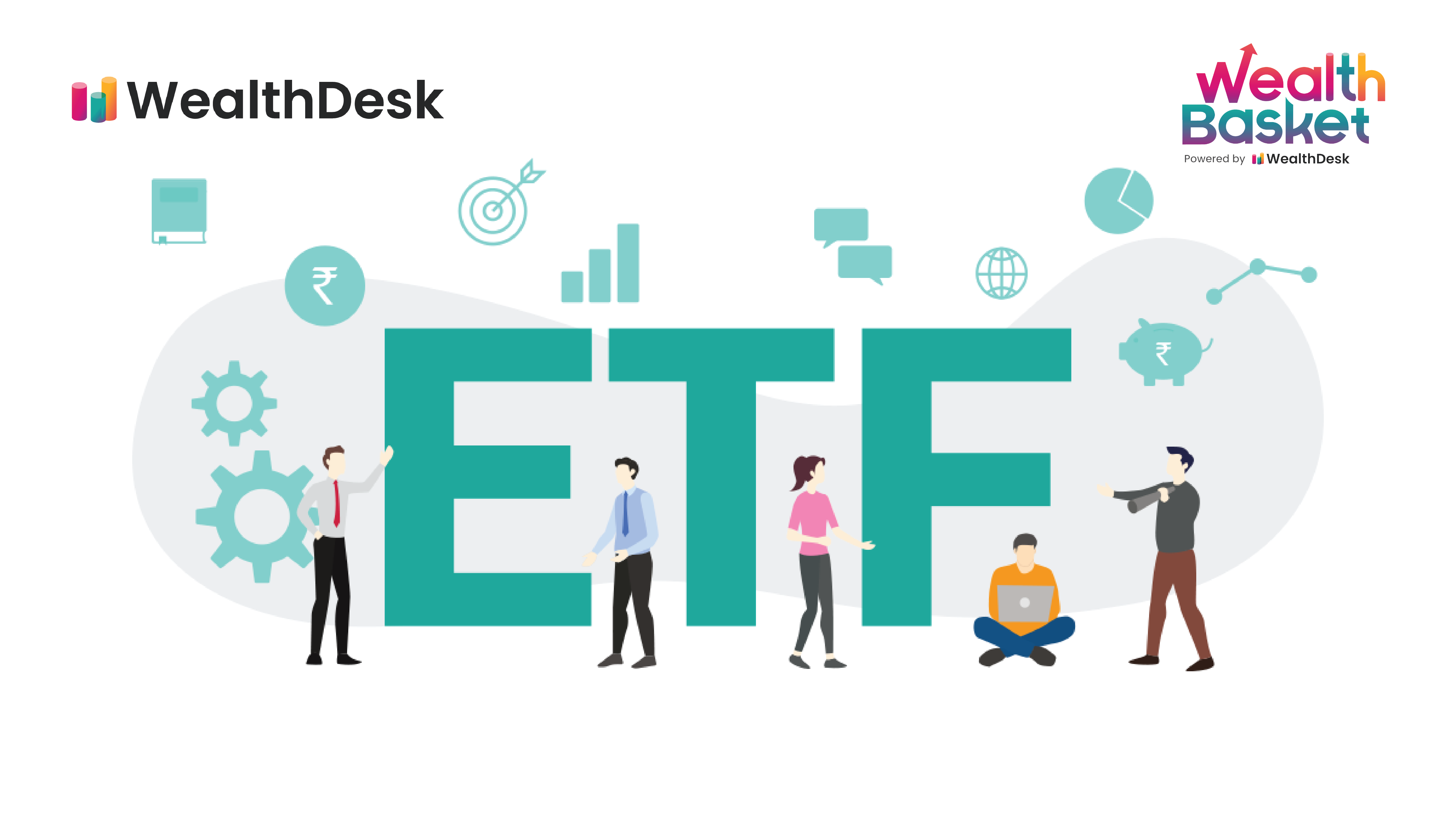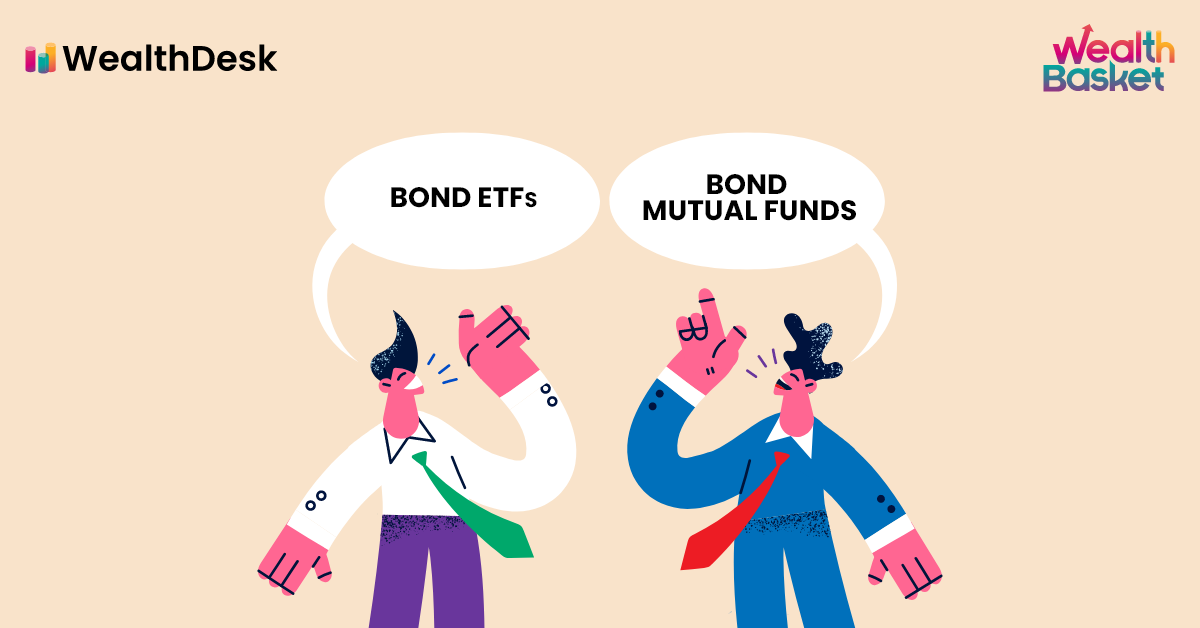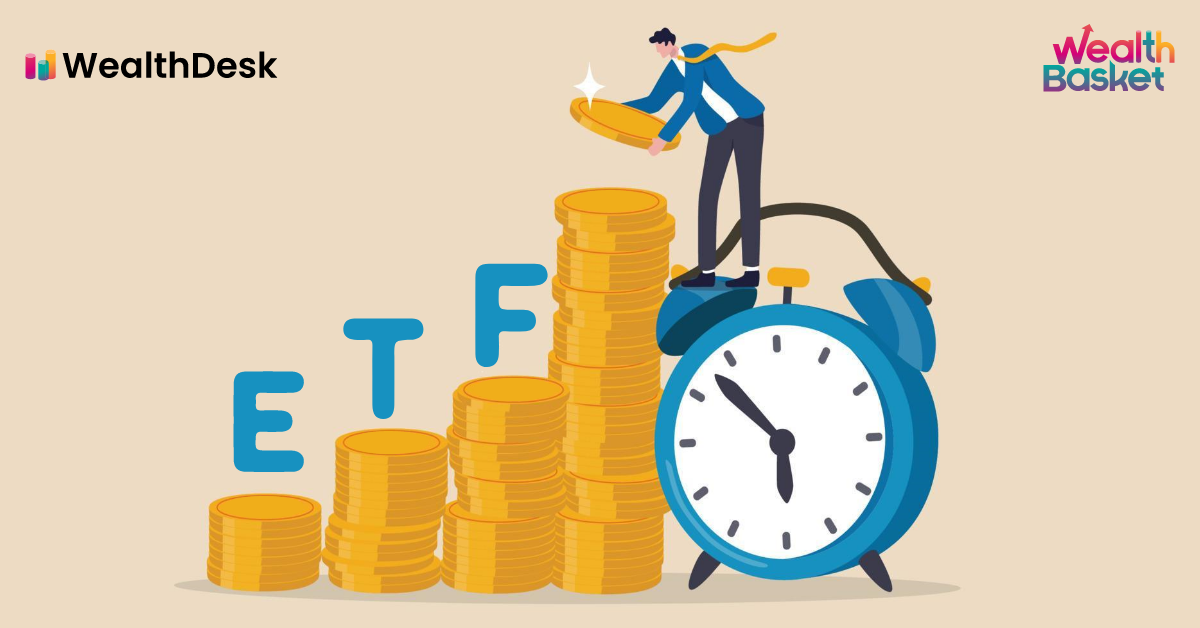When the question is about diversifying your investment portfolio, the term ‘ETF’ is floated frequently. But, what is an exchange-traded fund (ETF) and how do you know which one is the best exchange-traded fund in India for you?
An exchange-traded fund is essentially a mutual fund that can be traded on the stock market, just like you would trade shares. These are passively managed funds, and the advantage of investing in exchange-traded funds is that they allow you to diversify your portfolio at a lower cost than that for an actively managed mutual fund. While the majority of them replicate an index or a benchmark, there are other types of ETFs based on different underlying assets. For example, a Nifty ETF gives an investor exposure to the 50 stocks that comprise the Nifty 50 Index.
The question remains, how do you choose the right ETF for your portfolio? As there may not be a one-size-fits-all solution to this, there are certain points you need to take into account to make the right choice. First, you need to understand what you want from investing in an ETF.
Evaluating your investment and financial outlook
Before making an ETF investment, it is prudent to check where you stand with your financial situation. Review your financial goals and ensure they are up to date and aligned with your life goals. Then, look at your investment portfolio. How diversified is your portfolio and which investment instruments are currently in it? Next, evaluate the time horizon for your investments. How long do you want to stay invested and when do you intend to redeem your investment? To make the right choice, you also need to have a keen understanding of your risk tolerance. Are you risk-averse or can you afford to take on more risks? These are important considerations that require financial introspection before investing in an ETF.
Questions you should answer about ETFs
There are important questions concerning ETFs that you need to answer before selecting the right ETF. The main question that needs to be answered is why do you want to invest in an ETF? Once you know the answer to this question, you are on the right path to selecting the best ETF for your investment portfolio. Your purpose could vary from diversification to looking for alternatives to your investments in stock.
Other important questions you need to answer are:
i. Taking your risk tolerance and investment portfolio into account, would you consider investing in ETFs that track debt, equities, or commodities?
ii. Once invested, would you be trading units of the exchange-traded funds or would you be holding on to them long term?
iii. Which sectors would you want to get more exposure to?
iv. How liquid should your investment be?
When you know where you stand on your financial situation as well as what you want from your investment in ETFs, you can compare the available options for certain parameters and select the best ETF fund for your portfolio. Let’s take a closer look at these parameters.
- The size of the fund
A large ETF usually indicates a higher level of interest by investors. How is this beneficial to an investor? When there is a higher level of interest, it implies that the fund has a higher level of liquidity as well as lower costs of investing. While there is no guarantee regarding which is a better choice, experts usually suggest that you should avoid investing in a fund that is very small in size.
- How long has the ETF been around?
Exchange-traded funds that have been around for many years, and provide historical data that can be analyzed for their performance across the years. This allows you to make an informed and educated decision when investing. However, it is important to remember that historical performance doesn’t guarantee the same returns, but it is a good indicator.
- The demand for ETF
Unlike mutual funds, you can track the volume of exchange-traded funds being traded as they are listed on the stock market. The volume indicates if the fund is in demand or if there is a decline in one. You can analyze the sentiment that is resulting in the trading performance before deciding whether to invest or not.
- The ETFs tracking errors
ETFs, on principle, track an index or benchmark, by buying the underlying assets to mimic the performance of the index. It is important to note, however, that the fund does not buy every single security that makes up the index. This implies that there could be dissonance between the ETFs returns and that of the underlying index. This is termed a tracking error. A lower tracking error means that the performance of the ETF is aligned with the performance of the index. Therefore, when selecting, choose an ETF that has a lower tracking error.
- The cost of investing in an ETF
The cost of investing in any investment instrument should always be taken into consideration. As mutual funds are actively managed, they tend to charge an expense ratio for the administration charges. On the other hand, exchange-traded funds are passively managed, considerably lowering the expense ratio and thereby the cost of investing in them. But when you are choosing between two ETFs that are alike in every aspect, the expense ratio could be the deciding factor for you. You should select the one with the lower expense ratio as buying or selling the units will also incur a cost.
In India, ETFs give your investment portfolio great exposure to different sectors, optimizing your returns. To make the right choice and meet all your portfolio imperatives, Invest in WealthBaskets which is a portfolio of Equities, or ETFs, that helps you build low-cost, diversified, long-term as well as short-term portfolios.
Once you consider the parameters listed in this article, you will be in a better position to make the decision regarding which ETF stock you should be investing in, be it Nifty ETFs or equity ETFs. However, you must continue reviewing the fund’s performance periodically, ensuring that the parameters are intact as per your expectations and calculations.
FAQs
ETFs are considered to be more advantageous than
stocks. Ideal investments for beginners, ETFs
provide diversification for the same amount one
would invest in stocks, thus allowing the investor
to earn higher returns.
ETFs make for great investments for beginners as they provide numerous benefits to the investor, such as more exposure to different sectors due to diversification, low expense ratio, and a range of investment choices.
Similar to other investments,
ETFs also come with some risks. While they do track an underlying asset,
commodity, index or benchmark, if bought at a
significantly high premium, there is a possibility
of losing money when investing in an ETF
ETFs can prove to be safer than buying individual stocks. Trading in ETFs tend to have smaller fees and can be actively traded.


















